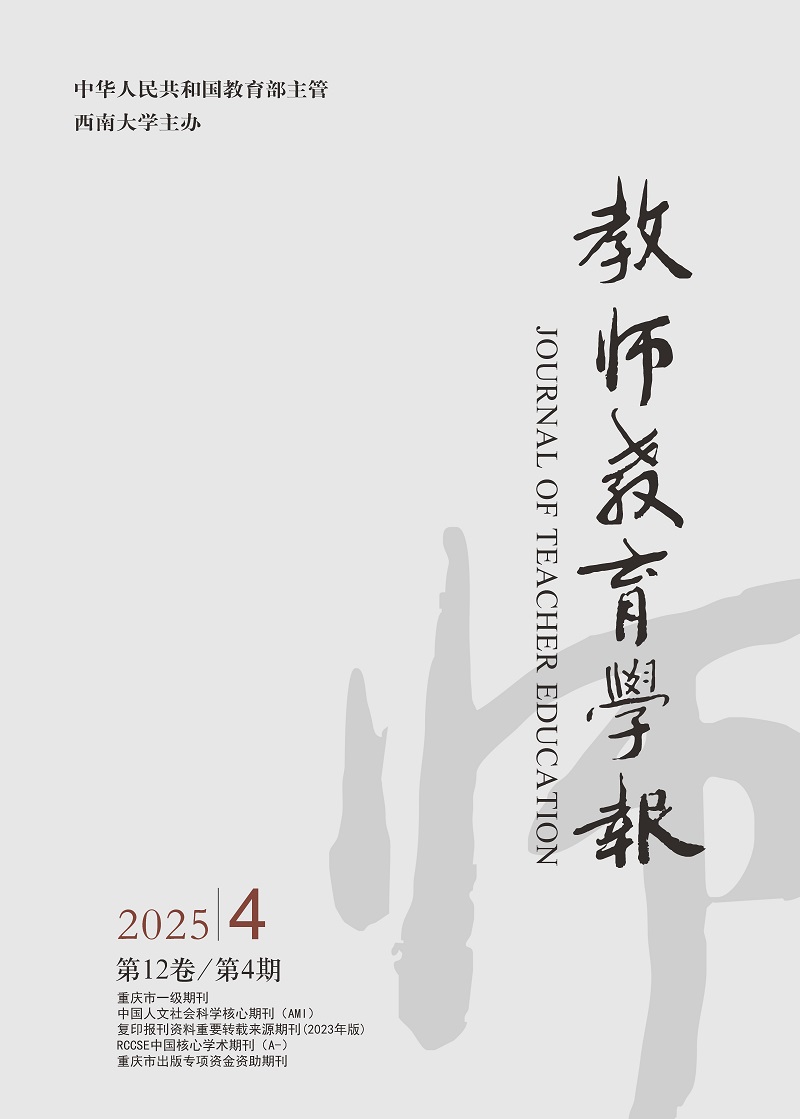|
[1]
|
蒯卫华.义务教育阶段音乐学科核心素养的跨学科评价研究[J].中国音乐,2024(3):57-66.
Google Scholar
|
|
[2]
|
STUMPF C. Die wiedergeburt der Philosophie[M]. Berlin:Kessinger Legacy Reprints,1907.
Google Scholar
|
|
[3]
|
SEASHORE C E. The psychology of musical talent[M]. New York:Silver,Burdettand Company,1919.
Google Scholar
|
|
[4]
|
KWALWASSERJ,DYKEMA P W. KD music tests:manual of directions[M]. New York:C. Fischer,Incorporated, 1930.
Google Scholar
|
|
[5]
|
DRAKE R M. Manual for the Drake musical aptitude tests[M]. 2nd. Chicago:Science Research Associates,1957.
Google Scholar
|
|
[6]
|
WING H D. Standardized tests of musical intelligence[M]. Windsor:NFER-Nelson Publishing Company,1970.
Google Scholar
|
|
[7]
|
刘源,刘红云.音乐能力测验:结构拓展与分析方式的转换[J].心理科学进展,2012(8):1322-1328.
Google Scholar
|
|
[8]
|
陈培刚.普通中小学音乐学业评价研究回顾与展望[J].人民音乐,2022(1):52-55.
Google Scholar
|
|
[9]
|
冯巍巍.音乐核心素养的特征与培养[J].课程·教材·教法,2016(12):9-13.
Google Scholar
|
|
[10]
|
吴秉旭,马云鹏.义务教育音乐核心素养的内涵及构成要素[J].音乐与表演,2021(2):175-179.
Google Scholar
|
|
[11]
|
FARNSWORTH P R. Tests of musical ability and appreciation:an investigation into the measurement,distribution,and development of musical capacity[EB/OL].[2024-03-24] https://www.researchgate.net/publication/247414237_Tests_of_Musical_Ability_and_Appreciation_An_Investigation_into_the_Measurement_Distribution_and_Development_of_Musical_Capacity.
Google Scholar
|
|
[12]
|
HARGREAVES D J. The developmental psychology of music[M]. London:Press Syndicate ofthe University of Cambridge,1986.
Google Scholar
|
|
[13]
|
SHUTER-DYSON R, GABRIEL C. The psychology of musical ability[M].2nd. San Diago, London:Academic Press,1999.
Google Scholar
|
|
[14]
|
KIRNARSKAYA D, WINNER E. Musical ability in a new key:exploring the expressive ear for music[J]. Psychomusicology:AJournalofResearch in Music Cognition, 1997,16(1-2):2-16.
Google Scholar
|
|
[15]
|
GEORGE D,STICKLE K,RACHID F,etal. The association between types of music enjoyed and cognitive,behavioral,and personality factors of those who listen[J]. Psycho-musicology:AJournal of Research in Music Cognition,2007,19(2):32-56.
Google Scholar
|
|
[16]
|
NORTH A C,HARGREAVES DJ. Lifestyle correlates of musical preference:Relationships, living arrangements, beliefs,and crime[J]. Psychology of Music,2007,35(1):58-87.
Google Scholar
|
|
[17]
|
中华人民共和国教育部.义务教育音乐课程标准(2011年版)[M].北京:北京师范大学,2012.
Google Scholar
|
|
[18]
|
HALLAM S. 21st century conceptions of musical ability[J]. Psychology of Music,2010,38(3):308-330.
Google Scholar
|
|
[19]
|
FORGEARD M, WINNER E,NORTON A,etal. Practicing a musical instrument in childhood is associated with enhanced verbal ability and nonverbal reasoning[EB/OL].(2008-10-29))[2024-03-24] .https://doi.org/10.1371/journal.pone. 0003566
Google Scholar
|
|
[20]
|
江珍.我国竞技健美操运动员艺术表现力评价指标体系的构建[D].武汉:武汉体育学院,2018.
Google Scholar
|
|
[21]
|
操亦恒.优秀青少年拉丁舞选手竞技表现力指标体系的构建[D].武汉:华中师范大学,2019.
Google Scholar
|
|
[22]
|
FORRESTER M A. Emerging musicality during the preschool years:acase study of one child[J]. Psychology of Music,2010,38(2):131-158.
Google Scholar
|
|
[23]
|
GUSTAVSON D E,FRIEDMAN N P,STALLINGS M C,et al. Musical instrument engagement in adolescence predicts verbal ability 4 years later:atwin and adoption study[J]. Developmental Psychology, 2021, 57(11):1943-1957.
Google Scholar
|
|
[24]
|
GORDON R L,FEHD H M, MCCANDLISS B D. Does music training enhance literacy skills?A meta-analysis[J]. Frontiers in Psychology,2015,6:543-565.
Google Scholar
|
|
[25]
|
陈琪欢.关于"5-6岁幼儿创造性思维发展"音乐手段介入的实证研究[D].武汉:武汉音乐学院,2020.
Google Scholar
|
|
[26]
|
朱玉江.中国传统音乐教育话语的文化哲学省思[J].音乐研究,2020(5):86-94.
Google Scholar
|
|
[27]
|
FORRAI K. The influence of music on the development of young children:music research with children between 6 and 40 months[J]. Early Childhood Connections,1997,3(1):14-18.
Google Scholar
|
|
[28]
|
SUTHERS L. Toddler diary:Astudy of development and learning through music in thesecond year of life[J]. Early Child Development and Care,2001,171(1):21-32.
Google Scholar
|
|
[29]
|
MCCUSKER J. Emerging musical literacy:investigating young children's music cognition and musical problem-solving through invented notations[J]. Dissertation AbstractsInternational,2001,62(2):504-525.
Google Scholar
|
|
[30]
|
GEOGHEGAN N, MCCAFFREY J M. The impact of music education on children's overall development:towards a proactive advocacy[C]. Melbourne:Australian Association for Research in Music Education,2004:163-176.
Google Scholar
|
|
[31]
|
庄钟春晓.基于学科核心素养的中小学音乐学业测评指标体系研究[J].课程·教材·教法,2021(5):130-136.
Google Scholar
|






 DownLoad:
DownLoad: